24 Jul2020
By Sara Skretta
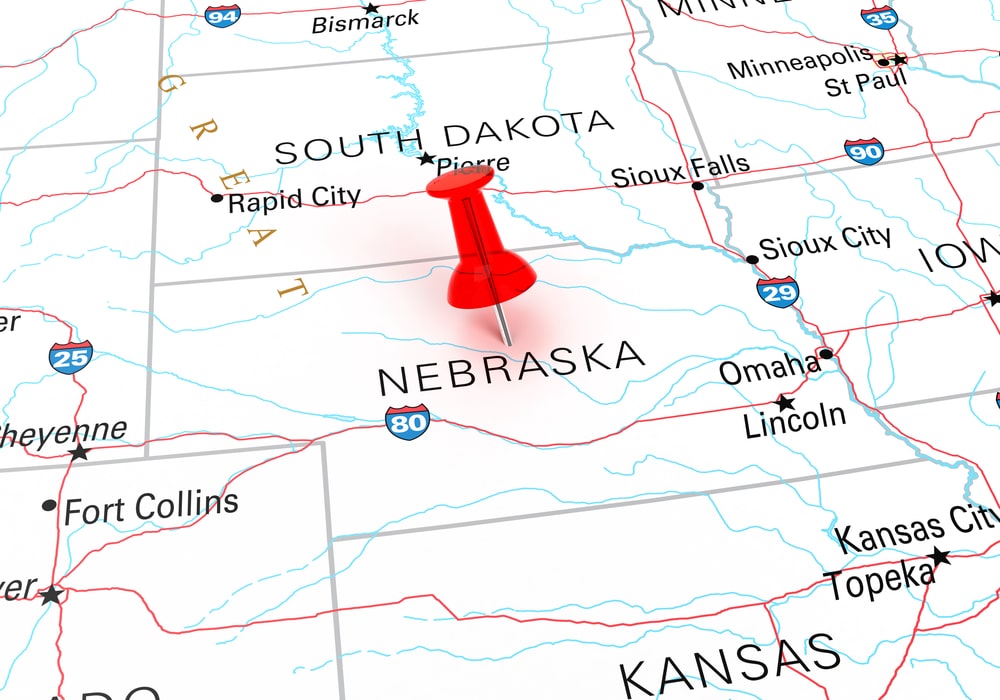 Andrew Carnegie once described teamwork as, “… the ability to work together toward a common vision and the ability to direct individual accomplishments toward organizational objectives … It is the fuel that allows common people to attain uncommon results.” Carnegie was describing the challenges and opportunities that often arose in the business world of the early twentieth century, but the quote has a particular resonance today as the people of the world come together to defeat a global pandemic.
Andrew Carnegie once described teamwork as, “… the ability to work together toward a common vision and the ability to direct individual accomplishments toward organizational objectives … It is the fuel that allows common people to attain uncommon results.” Carnegie was describing the challenges and opportunities that often arose in the business world of the early twentieth century, but the quote has a particular resonance today as the people of the world come together to defeat a global pandemic.
Teamwork is also how Nebraskans have chosen to face the many challenges related to the Coronavirus in our state—challenges that have expanded beyond healthcare to the economy and to education. And teamwork is at the heart of our efforts to ensure that teacher preparation continues on schedule. To that end, Nebraska education officials and state educational institutions are working together to put in place the program, licensure, and other modifications necessary to keep our student teachers on track.
24 Jul2020
By Dustin Wunderlich
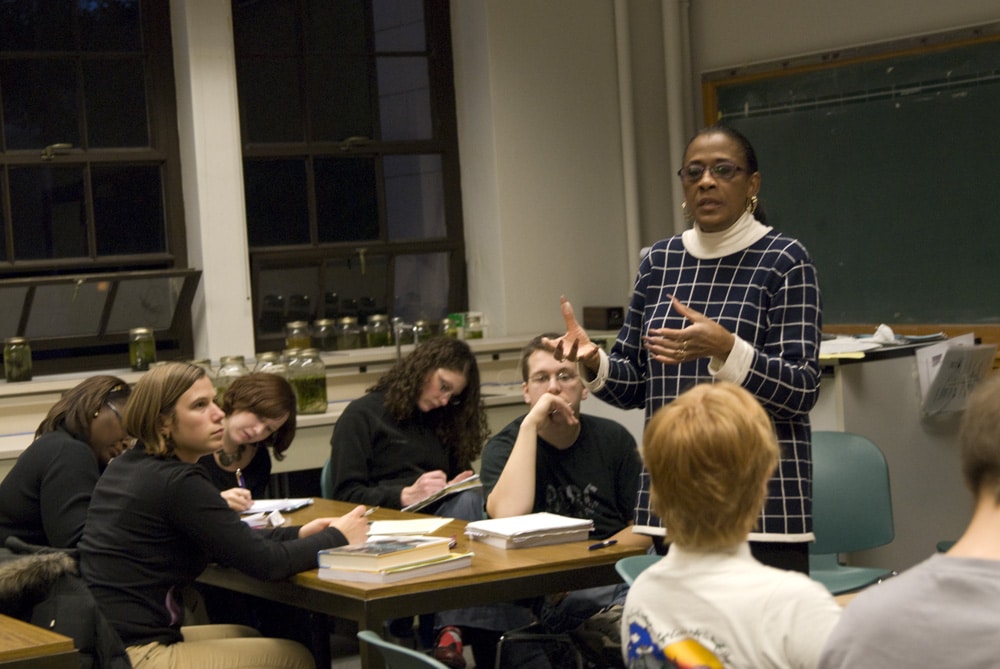
This article originally appeared on the University of Washington website and is reprinted with permission.
When Professor Geneva Gay began her career as a high school social studies teacher more than four decades ago, the concept of multicultural education was still in its infancy. No university had even started offering a doctoral program in the field.
This July, Gay will retire following a 29-year career at the University of Washington College of Education in which her internationally-recognized scholarship has advanced the field in profound ways — while making clear the essential role of multicultural education in an increasingly diverse and interconnected world.
24 Jul2020
By Linda Minor

Join AACTE at its inaugural, virtual 2020 Washington Week this September. You will be able to connect with peers from around the nation under the event’s theme Your Voice Matters. Whether you’re joining the State Leaders Institute, Holmes Policy Institute or Advanced Policy Course, and/or Day on the Hill, you won’t want to miss this opportunity to learn, work, and advocate together!
Here’s what past attendees had to say about the events:
23 Jul2020
By Ashley White and Jane E. West
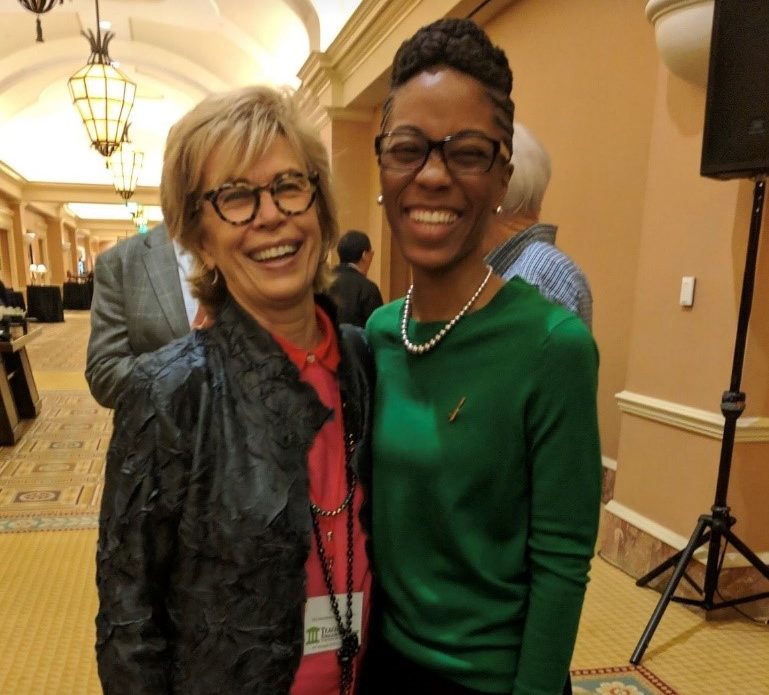 In Part 2 of this Q&A feature, AACTE consultant Jane West, a former teacher with a doctorate in special education and 30 years of policy experience in the nation’s capital, and Holmes Program Alumna Ashley L. White, assistant professor at the University of Wisconsin and 2019-20 Joseph P. Kennedy Fellow, share their mentoring/mentee relationship and how it has evolved over time to address race. (Read Part 1.)
In Part 2 of this Q&A feature, AACTE consultant Jane West, a former teacher with a doctorate in special education and 30 years of policy experience in the nation’s capital, and Holmes Program Alumna Ashley L. White, assistant professor at the University of Wisconsin and 2019-20 Joseph P. Kennedy Fellow, share their mentoring/mentee relationship and how it has evolved over time to address race. (Read Part 1.)
Q: Describe a good white ally.
White: This is not an all-encompassing definition and I am not the monolithic expert—I am speaking from my experiences in dealing with White people all my life, some who get it and many who do not. Allies of any kind have to accept the reality of system and practices that have put them in a position of privilege while disenfranchising others (e.g., the notion of heterosexuality or “able-bodies” as superior forms of existence). Allies must value the whole over the self. Allies must recognize that if one suffers, all suffer, even if not immediately. Allies must embrace their ignorance and lack of understanding in order to counteract these.
As it pertains to the subject of racism in society, racism in education, White allies have to accept the reality of racism in every system and they also have to accept that no matter the topic, particularly as it relates to education, issues of race cement long-standing inequities that cannot be resolved without centering the issues of race. In other words, White allies don’t avoid our country’s foundation, which is built upon individual and systematic racism for the gain of the dominant class. White allies must learn to be quiet when Black and Brown folks are speaking about their experiences and perspectives. White allies must learn not to interrupt and to question themselves, especially when they feel defensive, undermined, or fearful. White allies have to stop hiding behind rhetoric of equity and understanding when their actions demonstrate the very opposite. White allies have to be willing to ask questions, not to prove they are right, but because they know they are wrong.
23 Jul2020
By Stephen Canipe
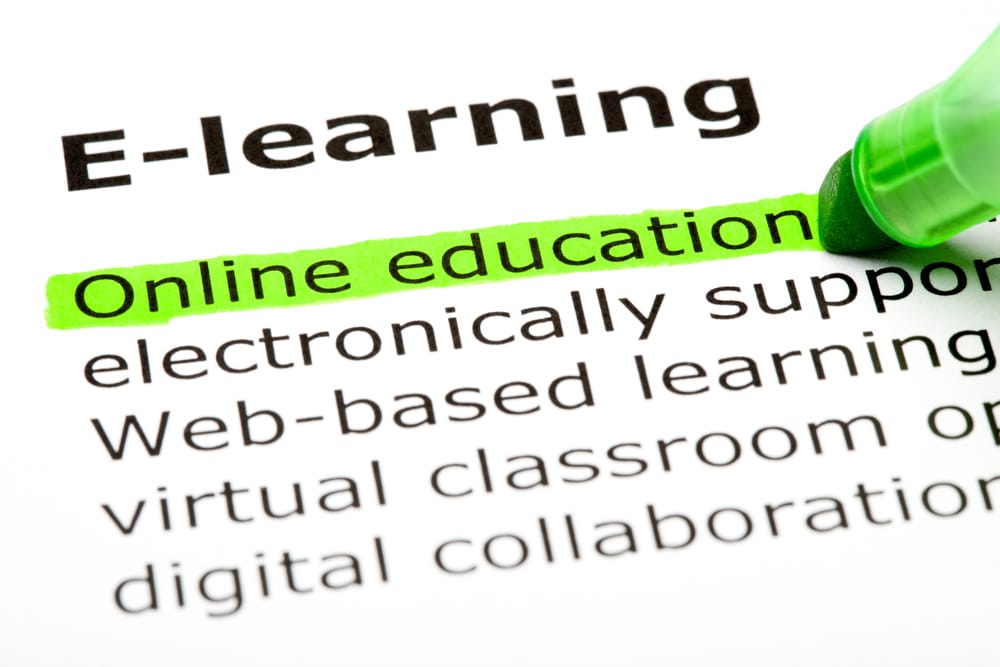 When the COVID-19 pandemic began, many teachers, students, and parents rushed to navigate online learning. Some schools may reopen with social distancing guidelines in place, while others may incorporate a virtual component. To limit COVID-19 exposure while maintaining the quality of education for students, educators will need to embrace online instruction.
When the COVID-19 pandemic began, many teachers, students, and parents rushed to navigate online learning. Some schools may reopen with social distancing guidelines in place, while others may incorporate a virtual component. To limit COVID-19 exposure while maintaining the quality of education for students, educators will need to embrace online instruction.
Navigating new technology can be a big hurdle for veteran teachers. As many school districts are announcing plans to incorporate virtual learning for the upcoming school year, there will be little time for teachers to prepare. Seasoned educators will need a lot of training to master remote instruction and help their students succeed.
Teacher candidates enrolled in online programs can help bridge the gap. These candidates have developed technology skills and experienced asynchronous learning, which puts them in a great position to pivot to remote teaching. With 50 years of experience in distance education and online learning, Walden University faculty are prepared to provide teacher candidates with the knowledge and experience needed for online instruction in PreK-12 schools. Walden even helps teacher candidates develop and practice their skills for the classroom through virtual reality training simulations.
23 Jul2020
By Jerrica Thurman
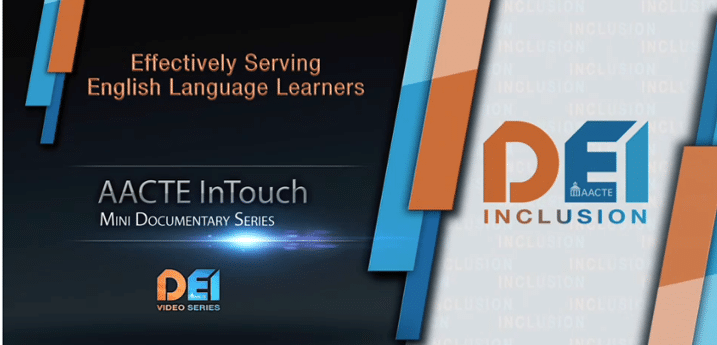
Ed Prep Matters features the “Revolutionizing Education” column to spotlight the many ways AACTE, member institutions, and partners are pioneering leading-edge research, models, strategies and programs that focus on the three core values outlined in the current AACTE strategic plan: Diversity, Equity, and Inclusion; Quality and Impact; and Inquiry and Innovation.
In this final installment of the first Diversity, Equity and Inclusion video series, AACTE members discuss the importance of preparing high quality teachers to educate the growing population of English language learners in the U.S. Statistics show English language learners currently represent 25% of the student body and are expected to grow to 50% within the next five years.
In “Effectively Serving English Language Learners,” Jacqueline Rodriguez, AACTE Vice President, Research, Policy and Advocacy said, “according to the U.S. Department of Education, we’ve seen dramatic increases in English language learners across the country. Some states have increases of over 40% since 2010.” “It’s very important now that we see how our population of students is changing, and what our teacher candidates are facing in the future,” said Cathleen Skinner, director of world languages for Oklahoma State Department of Education. “[We need] to ensure that we are providing our candidates with a kind of content to meet the needs of today’s diverse students, and to make sure that they are comfortable and have had experiences working with families and communities that differ from their own,” said Wanda Blanchett, dean of the graduate school of education at Rutgers University New Brunswick. “That means the teachers are going to have to develop relationships with people outside the educational community,” said Brian Williams, director of the Alonzo A. Crim Center for Urban Educational Excellence at Georgia State University.
Watch the full video.
View the complete first series of AACTE’s DEI videos on the Video Wall. Stay tuned for the second series of the DEI videos coming this fall. Help AACTE spread the word by sharing the videos with your social network!
23 Jul2020
By Alexander Cuenca
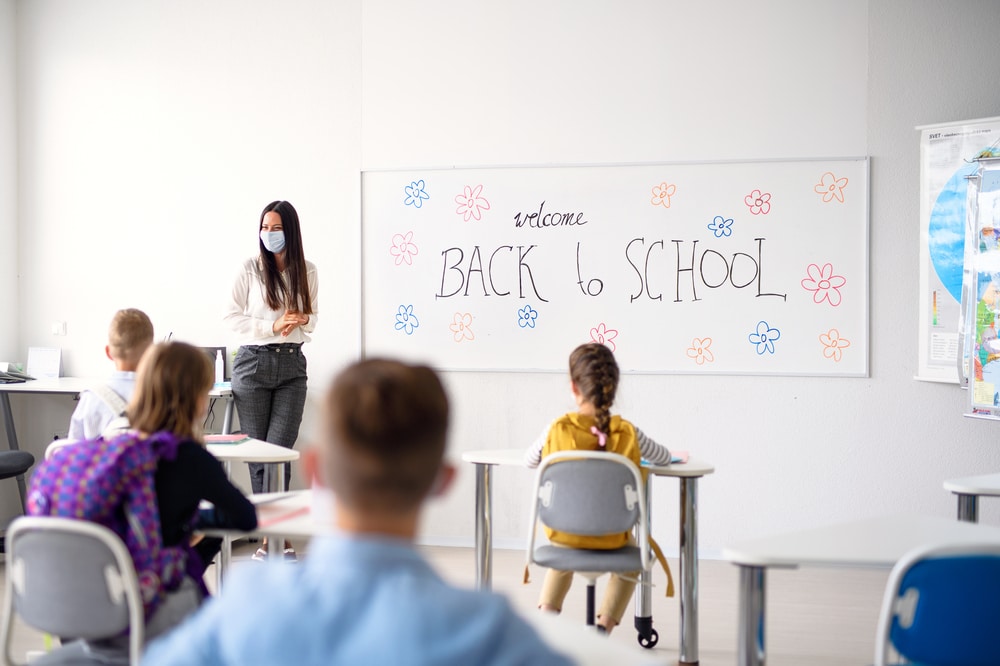 The following article is Part 2 of an article by AACTE member Alex Cuenca in which he highlights the tensions involved in continuing student teaching in the fall and shares a guidepost for educator preparation programs during the COVID-19 pandemic. Read Part 1.
The following article is Part 2 of an article by AACTE member Alex Cuenca in which he highlights the tensions involved in continuing student teaching in the fall and shares a guidepost for educator preparation programs during the COVID-19 pandemic. Read Part 1.
In my previous post, I explored how the belief that “experience” is the most authentic route for teacher learning creates an overreliance on field experiences and student teaching in teacher education programs. With wildly different state, local, and institutional responses to the COVID-19 crisis, teacher education programs are now left to navigate public policy on their own. Given the pedagogical power yielded to “experience” in teacher education, some programs (if allowed) will be tempted to continue with placements in fall during a health crisis because preparation without field experiences seems inconceivable. To be clear, the overriding concern ought to be for the health and wellbeing of our prospective teachers. Wondering whether we should place human bodies in a potentially dangerous situation during a global pandemic should not be a wondering at all. Yet, even if we suspend the recognition that schools are potentially perilous sites for the health of our teacher candidates, “experience” still fails as a sound rationale.
An additional layer of regulations based on the fear of spreading a virus in schools will create unnatural permutations to the already idiosyncratic nature of teaching and learning. The new questions raised by teaching in a pandemic are not just a logical variant of the typical uncertainties, but instead a novel unpredictability. Masks, social distancing, and prohibiting sharing will become new rules to enforce and police. Teaching and learning, which is dependent on social interaction will be socially distant. Teachers will have to divide their curricular and pedagogical planning and teaching between remote and face-to-face populations. And, whatever norms teachers construct in this uncertain environment will have to be immediately adjusted when schools intermittently close because of a positive COVID result. The uncertainty of schooling during a pandemic is perhaps best captured by Sarah Mulhern Gross, a New Jersey English teacher who has compiled over 350 questions that teachers have about teaching in the fall. Among this list are a series of questions pertinent to teacher education:
- If a preservice teacher is exposed to COVID-19 while teaching will they be able to get tested through the district or will they have to find their own means to do so?
- How will preservice teachers complete sections of the edTPA that require student collaboration?
- How will preservice and coopeting teachers maintain social distancing while working with each other?
- If a preservice teacher is forced into quarantine due to exposure could it delay the completion of their program?
- Will preservice teachers be encouraged to take sick days? Historically they risk losing credit if they have absences.
If experience is paramount, is an experience in a milieu of prodigious uncertainty what teacher education programs want to deliver in the fall?
21 Jul2020
By Lynn M. Gangone
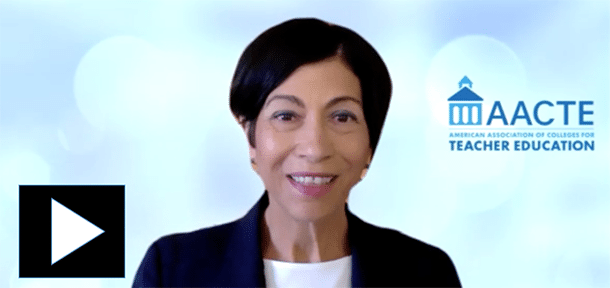
Greetings from your National Office team. Thanks to all of our members who stay in touch with us. Hearing how you navigate the complex issues fueled by the coronavirus pandemic, within your local communities, allows all members to benefit from your hard-earned lessons. Additionally, our collective work in educator preparation advocacy ensures that there are federal and state funds to support ALL students. AACTE maintains its strong commitment to advocacy, particularly at this time; know that we are taking a stand and advocating for legislation and initiatives that promote the safe reopening of our member institutions this fall. Please take a few minutes to watch the video above and learn more.
You can support AACTE’s advocacy work by joining our virtual 2020 Washington Week this September. Your voice matters regarding the current federal and state policies impacting colleges of education and their recovery from COVID-19. You can learn more about AACTE’s inaugural virtual conference at aacte.org.
20 Jul2020
By Ashley White and Jane E. West
In Part 1 of this Q&A feature, AACTE consultant Jane West, a former teacher with a doctorate in special education and 30 years of policy experience in the nation’s capital, and Holmes Program Alumna Ashley L. White, assistant professor at the University of Wisconsin and 2019-20 Joseph P. Kennedy Fellow, share their mentoring/mentee relationship and how it has evolved over time to address race.
Q: What is the nature of your mentoring relationship?
 White: Through my doctoral work, I became very interested in disability policy. It was through this interest that I met Jane. Anyone who knows about SPED/disability policy knows Dr. Jane West. What I didn’t know before interacting with Jane is that, while she was an advocate for the interests of special education and students with disabilities, she was aware of the structural and ideological inconsistencies that float right beneath the surface of the equity rhetoric that dominates disability advocacy.
White: Through my doctoral work, I became very interested in disability policy. It was through this interest that I met Jane. Anyone who knows about SPED/disability policy knows Dr. Jane West. What I didn’t know before interacting with Jane is that, while she was an advocate for the interests of special education and students with disabilities, she was aware of the structural and ideological inconsistencies that float right beneath the surface of the equity rhetoric that dominates disability advocacy.
West: I had the good fortune to meet Ashley as a doctoral student through her work with The Higher Education Consortium for Special Education—an organization with which I consult. Ashley was keenly interested in advocacy and policy—my areas of focus—so we formed a natural alliance. I was, and am, pleased to mentor her in those areas as she navigated her doctoral work and her career.
20 Jul2020
By Jane E. West

This blog post is written by AACTE consultant Jane West and is intended to provide updated information. The views expressed in this post do not necessarily reflect the views of AACTE.
Action Expected in July on Next COVID Relief Bill: Education in the Crosshairs
Beginning next week, we expect to see the Senate take up the next COVID relief bill. The House has passed their version of the bill and Senate Democrats have introduced their version of the bill, so the next move is up Senate Leader Mitch McConnell (R-KY). His bill may be unveiled next week.
Education has become a high profile and contentious matter for this bill, as the president has determined that the economy cannot move forward unless schools are fully open in person so that parents and college employees (and workers in related businesses) can return to work in person. Multiple agendas are woven through this debate, which will become even more prominent as decisions are made about whether to apply conditions to any further COVID relief funding for education.
17 Jul2020
By Monika Jo
Since AACTE and Mursion launched the Education Roundtable series, we have had the pleasure of showcasing the work of educators, who have integrated teacher training via virtual reality (VR) simulation into their respective programs or are studying the various aspects of this modality.
In an upcoming three-part mini-series, Carrie Straub, executive director of education programs and research at Mursion, will host a team from Harvard Graduate School of Education (HGSE) who have generously offered to share the magic behind their work. They will upack and discuss the following:
- Recruiting and training simulation specialists
- The development of simulations including how participants are oriented into Mursion experiences, models for simulation designs, and post simulation activities aimed at transferring skills
- The development of four simulations developed through the Reach Every Reader grant which HGSE designed to develop teachers as critical thinkers and learners in the classroom alongside their students
17 Jul2020
By Alexander Cuenca
The following article is Part 1 of an article by AACTE member Alexander Cuenca in which he highlights the tensions involved in continuing student teaching in the fall and shares a guidepost for educator preparation programs during the COVID-19 pandemic.
In this post, I explore how the unexamined inertia of “experience” in teacher education contributes to the hesitation of teacher education decision-makers to cancel field experiences and student teaching in the fall. Canceling field experiences and student teaching in the fall is the most responsible decision. Primarily, because even a basic understanding of the germ theory of disease during a pandemic should be enough of a rationale. However, because higher education is ensconced in the same neoliberal rationales that led to the premature opening of private and public enterprise over the last few months, teacher education programs must navigate public policy on their own. Of course, with all of the uncertainty that has been created by the response in the United States to COVID-19, I don’t pretend to know what is best for every single teacher education program. Field experiences are entangled in state licensure and certification regulations, institutional scheduling issues, and school and university partnership agreements. However, operating from the position that COVID-19 continues to pose a substantial risk to the health and well-being of students, teachers, school staff, and student teachers, I hope to provide pause for those who believe that field experiences and the student teaching experience must go on.
17 Jul2020
By Laila J. Richman and Laurie Mullen
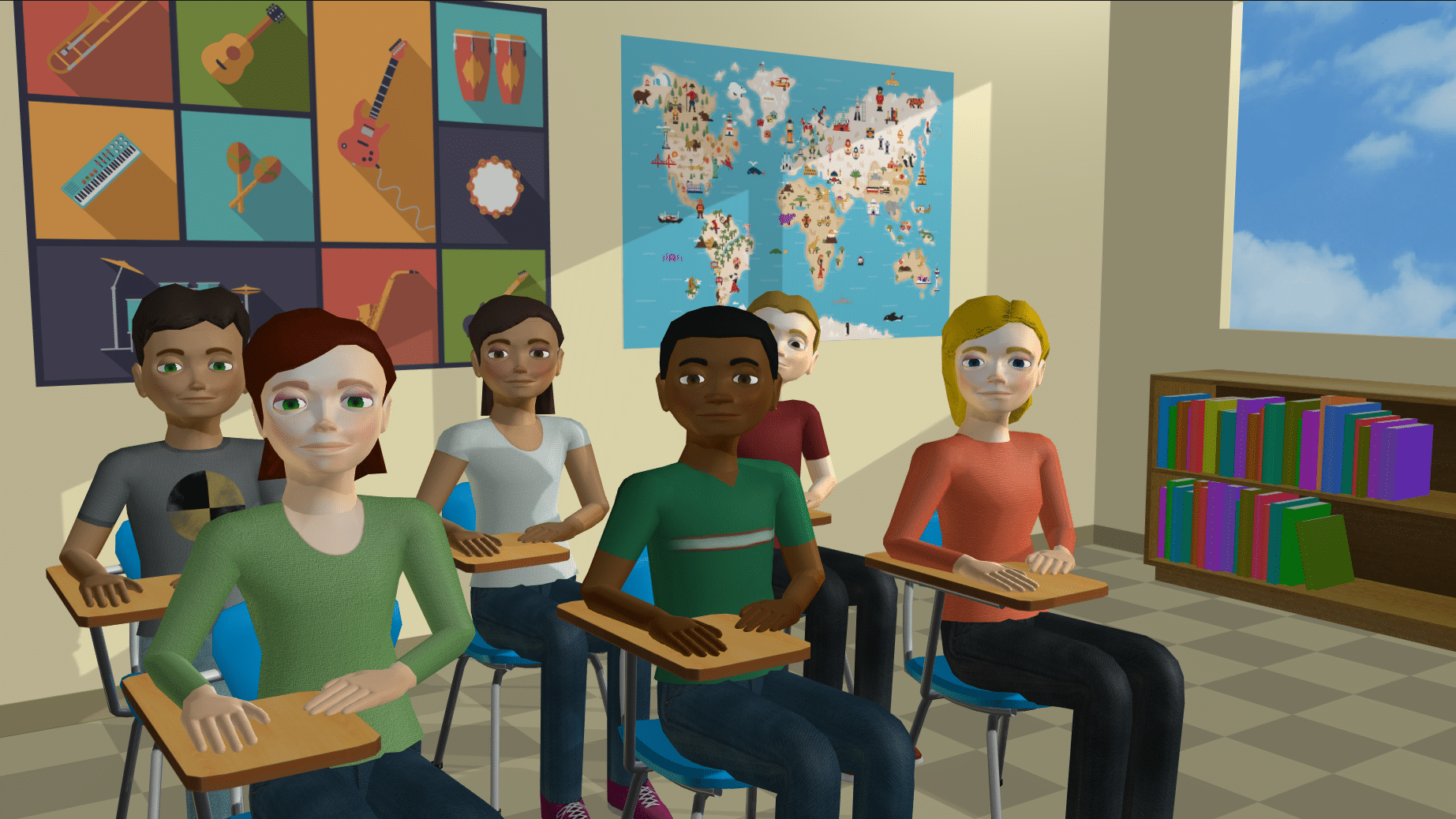
In March, when news of the coronavirus began to spread, one of our first tasks was to decide what to do with the hundreds of candidates who were in schools completing clinical experiences. This was new territory for everyone and no procedures for this type of situation had ever been developed. The decision was made to continue full-time internships, but all other field-based work was halted to allow P-12 teachers to focus on their own instruction and students. Through the strong partnerships we have with our school districts, we were able to navigate the situation and successfully graduate over 400 interns Spring 2020.
As we plan for the fall semester, while we now have some experience and advanced knowledge of the situation, the P-12 landscape will be even more varied—both within and across school districts. It has quickly become apparent that we will need to supplement our field-based work in other ways. We are assembling a range of options, including organizing a video repository, creating data-rich case studies from previous assignments, and building a tutoring network to offer virtual tutoring services to children in our local communities while simultaneously allowing candidates the opportunity to plan, implement, and evaluate their instruction. Another important option we will be utilizing to provide practice opportunities to candidates is SIMTeach@TU, our Mursion simulation system.
17 Jul2020
By Linda Minor
 AACTE is excited to offer its virtual 2020 Washington Week experience this September. The event dates have changed to offer you more opportunities to participate. Here’s the lineup:
AACTE is excited to offer its virtual 2020 Washington Week experience this September. The event dates have changed to offer you more opportunities to participate. Here’s the lineup:
Holmes Advanced Policy Course: September 2-3
On September 2, attendees will learn what to expect during the event and hear from a keynote speaker. The September 3 activities will include interactive breakout sessions and a congressional panel.
Holmes Policy Institute: September 8-10
On September 8, attendees will participate in a welcome session and engaging breakouts. Keynote speakers and panelists will show participants how to advocate for educator preparation through lively discussions and group activities. On September 10, participants will enjoy a virtual reception, including interactive games, to conclude the event.
Day on the Hill: September 9-10 and September 15-16
16 Jul2020
By Katrina Norfleet
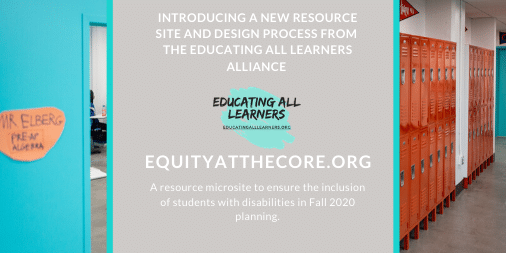
To support school leaders, teachers, students, and their families in coping with the changes brought by COVID-19, the Educating All Learners Alliance have worked with national experts and their 50-plus alliance partners, including AACTE, to develop a design process around nine critical questions to consider in reopening and recovery planning for fall 2020.
The equityatthecore.org microsite shares resources from partner organizations, hosts a discussion forum and outlines a design process to ensure that students with disabilities are not only a paragraph in the planning process but are at the center of the discussion about educating all learners to prioritize equity and inclusion.
AACTE members are encouraged to visit the site and explore this resource for administrators, teachers, and school communities. AACTE is proud to be a part of this uncommon alliance of organizations working with each other to support the recovery and reopening process.
 Andrew Carnegie once described teamwork as, “… the ability to work together toward a common vision and the ability to direct individual accomplishments toward organizational objectives … It is the fuel that allows common people to attain uncommon results.” Carnegie was describing the challenges and opportunities that often arose in the business world of the early twentieth century, but the quote has a particular resonance today as the people of the world come together to defeat a global pandemic.
Andrew Carnegie once described teamwork as, “… the ability to work together toward a common vision and the ability to direct individual accomplishments toward organizational objectives … It is the fuel that allows common people to attain uncommon results.” Carnegie was describing the challenges and opportunities that often arose in the business world of the early twentieth century, but the quote has a particular resonance today as the people of the world come together to defeat a global pandemic. 



 In Part 2 of this Q&A feature, AACTE consultant Jane West, a former teacher with a doctorate in special education and 30 years of policy experience in the nation’s capital, and Holmes Program Alumna Ashley L. White, assistant professor at the University of Wisconsin and 2019-20 Joseph P. Kennedy Fellow, share their mentoring/mentee relationship and how it has evolved over time to address race. (
In Part 2 of this Q&A feature, AACTE consultant Jane West, a former teacher with a doctorate in special education and 30 years of policy experience in the nation’s capital, and Holmes Program Alumna Ashley L. White, assistant professor at the University of Wisconsin and 2019-20 Joseph P. Kennedy Fellow, share their mentoring/mentee relationship and how it has evolved over time to address race. ( When the COVID-19 pandemic began, many teachers, students, and parents rushed to navigate online learning. Some schools may reopen with social distancing guidelines in place, while others may incorporate a virtual component. To limit COVID-19 exposure while maintaining the quality of education for students, educators will need to embrace online instruction.
When the COVID-19 pandemic began, many teachers, students, and parents rushed to navigate online learning. Some schools may reopen with social distancing guidelines in place, while others may incorporate a virtual component. To limit COVID-19 exposure while maintaining the quality of education for students, educators will need to embrace online instruction.
 The following article is Part 2 of an article by AACTE member Alex Cuenca in which he highlights the tensions involved in continuing student teaching in the fall and shares a guidepost for educator preparation programs during the COVID-19 pandemic.
The following article is Part 2 of an article by AACTE member Alex Cuenca in which he highlights the tensions involved in continuing student teaching in the fall and shares a guidepost for educator preparation programs during the COVID-19 pandemic. 


